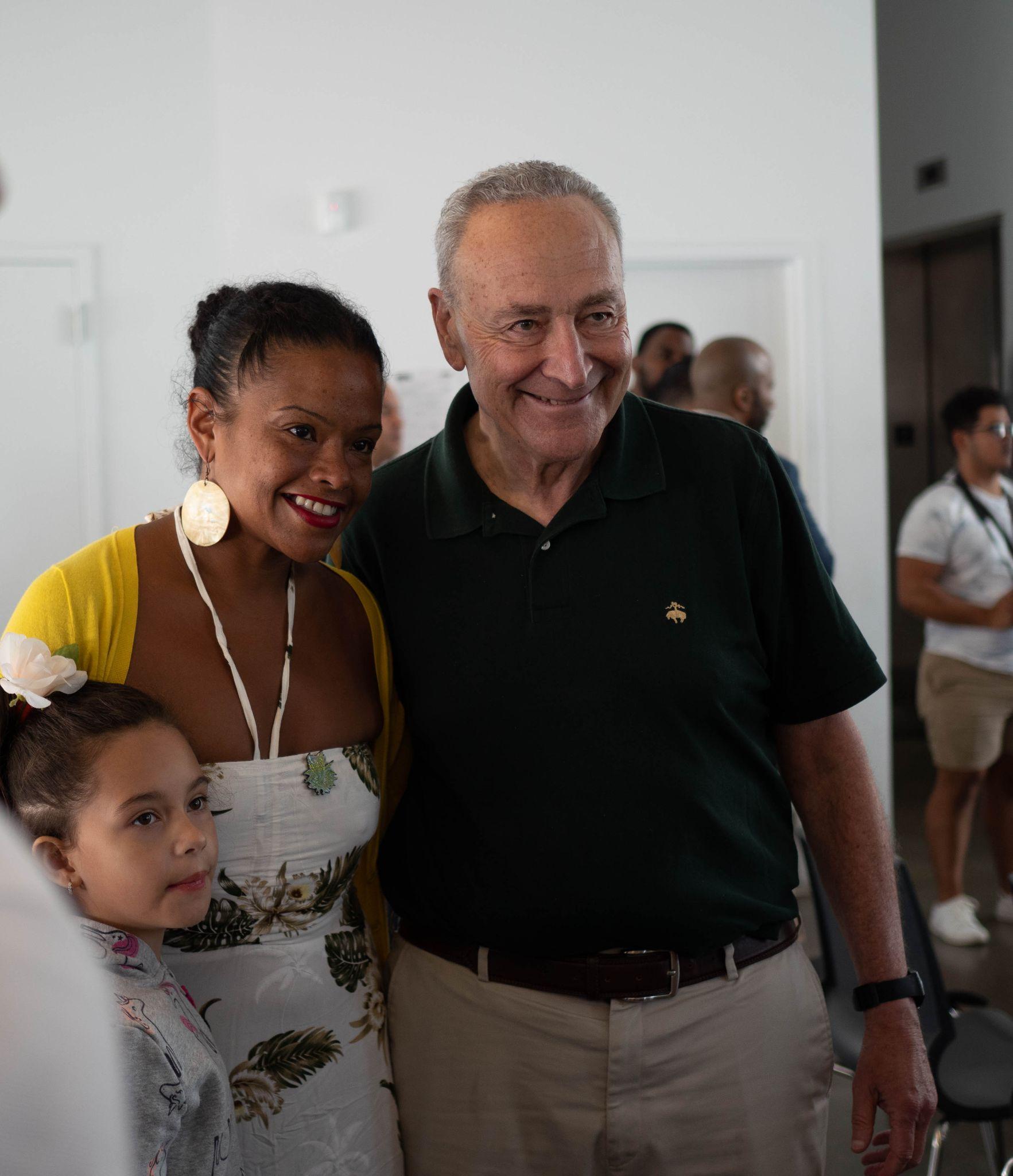As the date nears for legalized recreational marijuana sales in New York, two community organizations are teaming up to create an all purpose hub to ensure that Bronxites get a leg up on new economic opportunities.
Days after announcing his Cannabis Administration and Opportunity Act in Washington, Sen. Chuck Schumer came for the announcement of the new Bronx Cannabis Hub at the Bronx Museum of the Arts on July 24. If passed, the bill would lead to decriminalization of pot at the federal level. Elected officials and community groups are organizing to push Bronxites who have served jail sentences for non-violent infractions involving marijuana in decades past, to the front of the line.
“This great cannabis hub will become a model– not just for New York City, not just for New York State. But let there be hubs like this throughout the country,” said Schumer, acknowledging the role The Bronx Defenders and The Bronx Community Foundation will play, “helping people who need help, and undoing the great damage that occurred.”
Under the Office of Cannabis Management, conditional licenses are set to be issued to the first 100-to-200 eligible applicants this fall. If all goes according to plan, full licenses will be issued in January.
That tight timeline worries some advocates, who fear not everyone eligible to take advantage of the social equity initiative outlined in the Marijuana Regulation and Taxation Act, will be aware of the opportunities. Many potential applicants lack the legal and business know-how to navigate this emerging market as it takes shape, they say.
To bridge that divide, The Bronx Cannabis Hub plans to help budding entrepreneurs with their applications and business plans, as well as helping them assemble the necessary proof of criminal convictions and other criminal justice consequences for past pot-related charges.
The Hub is partnering with a legal cannabis expert and educator at CUNY and Pace University, who will help design educational programming.
Eli Northrup, an attorney at The Bronx Defenders, said “the first initial stage is getting people connected with pro bono attorneys to help them through the application process of this first 100-200 adult-use dispensary licenses.”
Northrup wishes that the Office of Cannabis Management weren’t as ambitious in timing its rollout.
“It is fast, because I don’t know that all the resources for people who are really supposed to be helped by this are in place,” he said. Still, he hopes the agency will be up to the task and recognize its potential as a model for similar community initiatives.
For now the Hub is a virtual space only. Access to resources can be found on their website.
One applicant is guardedly optimistic about the potential advantages of the new legislation. Greg Altenor and Raquel Pow launched a cannabis lifestyle brand named ROCK826 in August 2021, selling clothing, CBD, and hemp products. The couple are eligible for a conditional adult-use recreational license because Greg was incarcerated for selling marijuana to an undercover officer in 1996 in Washington Square Park.
“It’s great to hear that they are changing the law, and that that arrest helps me now decades later,” said Altenor.
When prospective employers run background checks on him, “they don’t hire him because of things like that,” said Pow.
Although they shared praise for certain parts of the new law, they were critical of some requirements for the conditional licenses, such as the requirement of at least two years prior business experience in the sector one hopes to obtain a license in. For example, an applicant hoping to open a dispensary must have experience running a retail business. But many people applicants with marijuana convictions would be unlikely to have had the resources or expertise to open businesses.
“A lot of people who got arrested don’t go out to get businesses,” said Pow. They see this developing into a potential roadblock in the process.”
The couple are pursuing a conditional adult-use dispensary license this fall, but say selling cannabis isn’t their only priority. Both have worked in social services, and are eager to help inform others in the community about ways to profit from the new laws, while ensuring safe and responsible use of cannabis.
“Harm reduction,” said Pow. you’re meeting your customers where they are, educating them, how to safely conceal your things in the house– away from children, because we’re parents also.”

